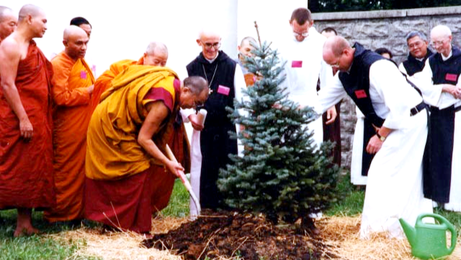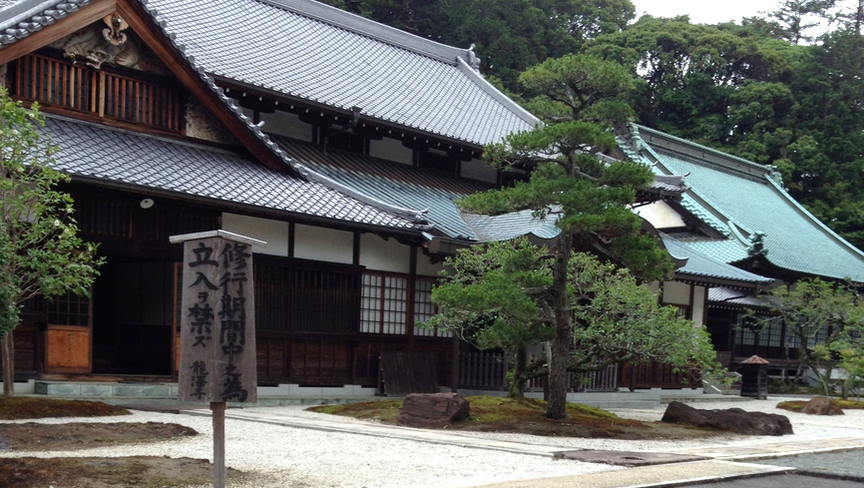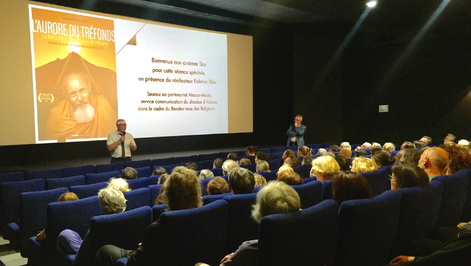|
Fabrice BLÉE is an associate professor of theology. Originally from France, he has lived in Canada since 1989. He has been practicing theology for 35 years - first at the Protestant Faculty of Theology in Strasbourg, then at the Catholic Faculty of Theology of the Université de Montréal, before teaching at the Faculty of Theology of Saint Paul University in Ottawa - with the intention of highlighting both the contemplative and mystical richness of Christianity and the promise of interreligious dialogue, two elements which, in synergy, contribute to individual and collective freedom.
|
He takes the path of inter-religious dialogue to explore the questions that his Catholic upbringing failed to answer, convinced nonetheless that the tradition of his parents and ancestors offers everything needed to live a fulfilling spiritual life.
University of Montreal, his alma mater
In addition to studying ethnology at the University of Strasbourg, he began this interreligious research by studying Tibetan Buddhism with Shérab Gyaltsen Amipa (Sakyapa) at the Institut Européen du Bouddhisme Tibétain (Sakya Tsechen Ling) in Kuttolsheim from 1987 to 1989, then with Géshé Kenrab Gajam (Gelugpa) at the Temple of Tibetan Buddhism in Montreal from 1989 to 1993. Later, in the early 2000s, he discovered Zen Buddhism at the Rinzai Ryutaku-ji Temple in Japan, where he stayed for 4 months under the guidance of Kyudo Nagawa Roshi, as well as vipassana meditation, as taught by S. N. Goenka, during several retreats in India and Canada.
From the outset, his theological path was marked by dialogue, leading him to write a master's thesis on death in the teachings of Bokar Rinpoche and the theology of Karl Rahner (Prix du Centenaire, 1992), followed by a doctoral thesis (1993-1999) on the experience of monastic interreligious dialogue, which led to several publications, including Le Désert de l'altérité (Médiaspaul, 2004), translated into Italian (Il deserto dell'alterità, Cittadella, 2006) and English (The Third Desert, Liturgical Press, 2011).
This book is the first in the Spiritualités en dialogue collection he created and directs for Éditions Médiaspaul. He continued his work on spirituality in dialogue during two post-doctorates: at Vidyajyoti Theological College in Delhi (2001) and at the Woodstock Theological Center at Georgetown University in Washington, DC (2003). In India, where he lived for over a year, he discovered Kashmiri Shivaism, which made a particular impression on him and drew him back to Christian mysticism, based on the writings of Lilian Silburn, especially Madame Guyon .
This book is the first in the Spiritualités en dialogue collection he created and directs for Éditions Médiaspaul. He continued his work on spirituality in dialogue during two post-doctorates: at Vidyajyoti Theological College in Delhi (2001) and at the Woodstock Theological Center at Georgetown University in Washington, DC (2003). In India, where he lived for over a year, he discovered Kashmiri Shivaism, which made a particular impression on him and drew him back to Christian mysticism, based on the writings of Lilian Silburn, especially Madame Guyon .
|
Georgetown University, Washington DC, USA
|
Seminar on Kashmiri Shivaism in Varanasi, India
|
His teaching - he gave his first course at the age of 26 at the Université de Montréal - focuses mainly on interreligious dialogue and contemplative paths. He sees theology as both a rigorous science and a work of the heart. The intellectual exercise it involves is no stranger to the experience of silence.
With this in mind, he has been leading meditation retreats for the past 20 years, and is proposing that the Graduate Diploma in Contemplative Theology and Spiritual Mentoring he is setting up in 2010 should begin with a 7-day silence retreat.
His theology is influenced by the spirit of monastic interreligious dialogue (DIM), on which he has written numerous articles, some translated into English, Italian, Portuguese, Spanish, Polish and German, and which rests on two pillars: contemplation and hospitality. He has drawn inspiration from this approach to develop a new ecological consciousness (Chair et souffle, vol. 3, no 1, 2008, p. 76-89.) and to create SOLARS CENTRE.
With this in mind, he has been leading meditation retreats for the past 20 years, and is proposing that the Graduate Diploma in Contemplative Theology and Spiritual Mentoring he is setting up in 2010 should begin with a 7-day silence retreat.
His theology is influenced by the spirit of monastic interreligious dialogue (DIM), on which he has written numerous articles, some translated into English, Italian, Portuguese, Spanish, Polish and German, and which rests on two pillars: contemplation and hospitality. He has drawn inspiration from this approach to develop a new ecological consciousness (Chair et souffle, vol. 3, no 1, 2008, p. 76-89.) and to create SOLARS CENTRE.
|
Premiere at the Mayfair Theater in Ottawa
|
Screening at Cinéma Star in Strasbourg
|
While he defends the idea that the theological word needs the silence of the mind, he also believes that it can be more fully embodied and enlivened through the arts. His film about the Benedictine monk Henri Le Saux opened up a promising dialogue with the creative process.
Making a documentary with the aim of awakening a spiritual dimension calls on a more intuitive mode of knowledge, complementary to a purely intellectual approach. The process of artistic creation contributes to the effort to incorporate all dimensions of being into theological reflection, and thus helps the latter to better account for the experience of the divine. He develops this idea in Filmmaking and Theology: Towards a Didactic and Mystagogical perspective (Cambridge Scholars Publishing, 2020).
Making a documentary with the aim of awakening a spiritual dimension calls on a more intuitive mode of knowledge, complementary to a purely intellectual approach. The process of artistic creation contributes to the effort to incorporate all dimensions of being into theological reflection, and thus helps the latter to better account for the experience of the divine. He develops this idea in Filmmaking and Theology: Towards a Didactic and Mystagogical perspective (Cambridge Scholars Publishing, 2020).









